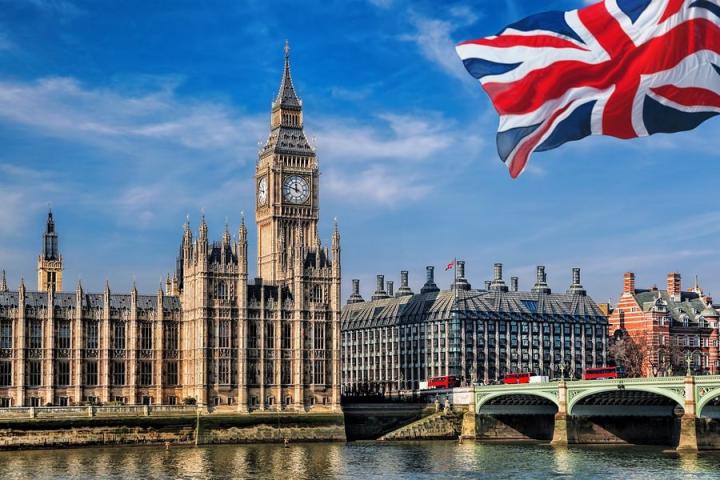United Kingdom emerged as the largest source of capital inflows into Nigeria in the first quarter of 2025, contributing a significant share of total foreign investments despite global economic headwinds. Data from the National Bureau of Statistics indicated that Nigeria attracted over N5.5 trillion in foreign capital during the period, with the UK accounting for the majority of the inflows. This marked a notable increase compared to the same period last year and highlights renewed investor confidence in Africa’s largest economy.
Analysts attribute the surge to ongoing economic reforms aimed at stabilising Nigeria’s macroeconomic environment and liberalising key sectors. The floating of the naira, removal of fuel subsidies, and efforts to streamline foreign exchange access are seen as policies that have encouraged portfolio and direct investments from international players, particularly from London’s financial markets. Financial services, manufacturing, and information technology sectors benefited most from the inflows, as foreign firms sought opportunities in Nigeria’s expanding consumer market and digital economy.

The Central Bank of Nigeria’s move to clear foreign exchange backlogs has also been cited as a critical factor in improving investor sentiment. By settling outstanding obligations to foreign investors, the CBN has enhanced liquidity in the FX market, enabling smoother repatriation of dividends and capital. This step has been praised by foreign portfolio managers and is believed to have played a role in the UK’s dominant position as Nigeria’s key investment partner in early 2025.
Further breakdowns of the NBS data show that other major contributors to Nigeria’s capital inflow include the United States, South Africa, and the United Arab Emirates, though their combined share was still less than that of the UK. Portfolio investments in equities and bonds continued to dominate inflows, but there was a modest rise in foreign direct investments targeted at the energy and infrastructure sectors. This reflects growing optimism that Nigeria’s ongoing reforms could unlock long-term opportunities, particularly if the government sustains policy consistency.
Experts, however, warn that sustaining these inflows will require Nigeria to address structural bottlenecks that have historically hindered foreign investment. Issues such as inadequate infrastructure, regulatory uncertainties, insecurity in certain regions, and high inflation remain areas of concern for international investors. Economic analysts have urged the government to deepen ongoing reforms and enhance ease of doing business to maintain the positive trajectory.
The Tinubu administration has consistently reiterated its commitment to attracting foreign investment as part of its Renewed Hope Agenda. Presidential economic advisers have pointed to policy reforms aimed at diversifying the economy beyond oil, increasing industrial capacity, and improving power supply as measures designed to make Nigeria a more attractive destination for global capital. The government is also engaging with the private sector to design incentives that could further boost foreign direct investments in agriculture, manufacturing, and technology.
Market watchers believe that Nigeria’s relatively low asset valuations and large youthful population remain strong pull factors for investors. Coupled with increasing interest in Africa as an investment frontier, these factors are likely to sustain the momentum of inflows if the macroeconomic environment continues to stabilise. The UK’s outsized contribution to the Q1 figures underscores the country’s role as a key strategic partner for Nigeria, both economically and diplomatically.
While the N5.5 trillion inflow is a positive sign, stakeholders emphasise the need for prudent management of the funds to ensure they translate into tangible economic benefits. Economists have called for channeling investments into productive sectors that can generate jobs, boost exports, and drive inclusive growth. They argue that relying too heavily on portfolio investments could make Nigeria vulnerable to sudden capital reversals if global financial conditions tighten.
Going forward, the challenge for Nigeria will be to sustain and expand on the gains recorded in the first quarter. Investors are closely watching policy implementation, exchange rate stability, and security reforms as key indicators of future investment potential. If Nigeria can maintain consistency and build on its reform agenda, analysts believe capital inflows could surpass 2024 levels and contribute significantly to economic recovery.
The UK’s leadership in Nigeria’s capital inflow reflects a renewed partnership that has the potential to deepen trade and investment ties. With other economies also looking to expand their footprint in Africa, Nigeria’s ability to retain investor trust and convert inflows into sustainable development will be pivotal to its long-term economic trajectory.
Support InfoStride News' Credible Journalism: Only credible journalism can guarantee a fair, accountable and transparent society, including democracy and government. It involves a lot of efforts and money. We need your support. Click here to Donate
